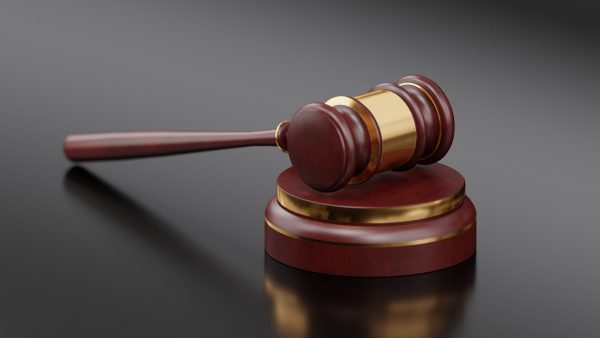Investigation Finds Most Judges Who Break Laws Or Ethics Rules Don’t Lose Their Jobs
Judges, like a lot of professions, can face formal complaints for wrongdoing. While a recent Reuters investigation finds most complaints were frivolous, when judges did break the law or ignored ethics guidelines, most were able to keep their jobs. In Alabama, it’s even tougher to discipline a judge than it is in most other states. WBHM’s Andrew Yeager spoke with Reuters investigative reporter John Shiffman about the findings.
The case of Marquita Johnson, a single-mom in Montgomery:
She continued to rack up traffic tickets that she could not afford. Judge Les Hayes, who was a municipal judge in Montgomery, eventually sentenced her to 496 days behind bars for failing to pay these traffic tickets. She never had any previous criminal activity that I know about.
Marquita Johnson was perhaps the starkest victim, being sentenced to more than a year in prison, having three children cast into foster care. One daughter was molested. Another was physically abused while she (Marquita Johnson) was in jail.
How ethical concerns about judges are handled in Alabama:
The way it works is that you file a complaint with the Judicial Inquiry Commission in Montgomery. Alabama has some very strict rules about how you can complain about a judge. One of the things that Alabama requires that most states don’t is that you must mail in a written complaint. You can’t email it or call it in. It also has to be notarized, which means it’s sworn. It’s not easy always to get a notary. It’s a pain for regular people, but imagine if you’re incarcerated or if you’re poor and just don’t have the right contacts with the legal system.
How Alabama differs from other states:
In the vast majority of states, somebody could see a news story or see a lawsuit filed against a judge that makes the news. Under Alabama’s rules, commission staff can’t open an investigation until it goes before the full nine-member board and they agree to do that. The problem there, of course, is that can delay any kind of investigation.
The other thing that makes Alabama unique is that it has a rule that says that during an investigation, the commission must keep the judge apprised of all of the matters in the investigation including subpoenas, witness statements, etc. That’s normal after someone’s charged in almost any kind of court, but we couldn’t find any other kind of investigation in the United States, any other process, in which someone under investigation is apprised of the investigation as it’s happening and what the people investigating them know. That makes it very hard to investigate a judge and it also makes it intimidating. If you’re a lawyer in a local town and you know that everything you say or do or tell the commission about, the judge will find out almost immediately, that’s very intimidating.
This interview has been condensed and edited for clarity.
24 states sue Trump admin to unfreeze more than $6 billion in education grants
The lawsuit comes two weeks after the Trump administration first notified states it was withholding previously approved funds for migrant education, before- and after- school programs and more.
Where to start? This week’s new releases are an all-you-can-read buffet
This week, new horror from Silvia Moreno-Garcia, a funny college do-over from Jeneva Rose, and autofiction from Hannah Pittard. Plus, stories about the American South, and a deep dive into the Earth.
More immigration judges are being fired amid Trump’s efforts to speed up deportations
Several more immigration judges have been fired, even as the Trump administration ramps up immigration enforcement, and after Congress gave the Department of Justice $3 billion, in part to hire judges.
Why the health care lobby failed to stop cuts to Medicaid funding
The powerful health industry lobby couldn't persuade GOP lawmakers to oppose big Medicaid cuts in President Trump's tax and spending bill. What's behind the lobbying failure?
South Africa’s president creates commission to look at police corruption allegations
South Africa's President Cyril Ramaphosa has suspended the police minister and launched a sweeping inquiry into alleged sabotage at the highest levels of law enforcement..
Wrongly convicted, he became ‘The Jailhouse Lawyer’ — and helped free himself
While serving a life sentence for a murder he was eventually exonerated of committing, Calvin Duncan studied law and helped many wrongfully convicted prisoners. His memoir is The Jailhouse Lawyer.








